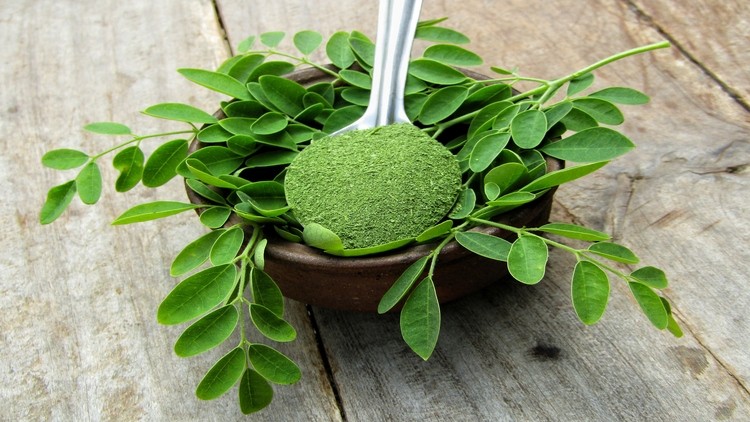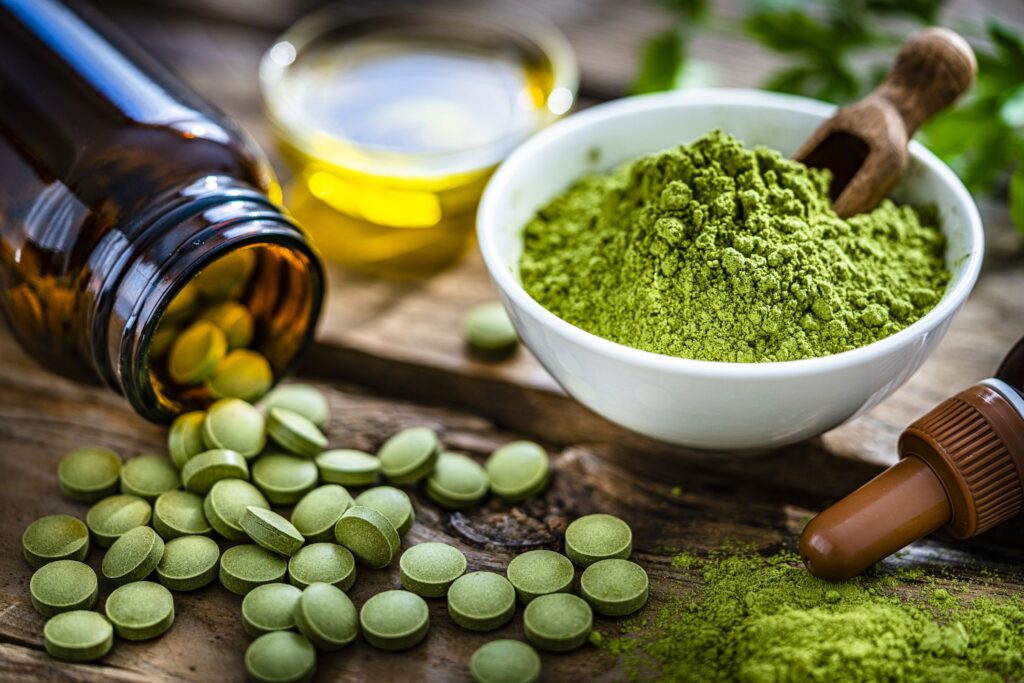Discovering Moringa: The Leaf Powder Revolution unveils the wonders of this superfood, its benefits, and how it’s transforming health globally. Dive into this comprehensive guide for insights into the Moringa phenomenon.
Introduction
Embracing the power of nature, Discovering Moringa: The Leaf Powder Revolution unveils a botanical wonder known for its immense health benefits and nutritional value. This article navigates through the rich tapestry of Moringa, delving into its origin, benefits, and its role in transforming health worldwide.
The Origins of Moringa
Moringa, scientifically known as Moringa oleifera, is a plant that has a rich history and is native to various regions in South Asia and parts of Africa. Its origins can be traced back thousands of years, and it has been cultivated and used for various purposes throughout history.
Here are some key points about the origins of Moringa:
- Native Regions: Moringa oleifera is believed to have originated in the foothills of the Himalayan mountains, which span across countries such as India, Nepal, and Bangladesh. It is also native to parts of Africa, including regions in Sudan, Ethiopia, and Kenya.
- Historical Use: Moringa has a long history of use in traditional medicine and as a food source in the regions where it is native. The plant has been valued for its leaves, pods, seeds, and flowers, all of which are edible and have nutritional and medicinal properties.
- Cultural Significance: Moringa has held cultural and medicinal significance in various indigenous communities for centuries. It has been used to treat a range of ailments and is often considered a “miracle tree” due to its nutritional value.
- Spread to Other Regions: Over time, Moringa has been introduced to many other tropical and subtropical regions around the world. It is now cultivated in countries across Asia, Africa, the Americas, and the Caribbean.
- Nutritional Value: Moringa’s reputation as a nutritional powerhouse has contributed to its widespread cultivation and use. Its leaves, in particular, are rich in essential vitamins, minerals, protein, and antioxidants, making it a valuable dietary resource.
- Modern Uses: In recent years, Moringa has gained global popularity as a superfood and dietary supplement due to its impressive nutrient content. It is used in various forms, including Moringa leaf powder, capsules, teas, and more.
- Sustainable Crop: Moringa is known for its resilience and ability to thrive in arid and challenging environments. It is considered a sustainable crop due to its ability to grow quickly and provide a source of nutrition in regions with limited resources.
- Research and Development: Ongoing research continues to explore the potential health benefits and applications of Moringa, including its use in combating malnutrition, addressing water purification, and its potential as a natural remedy for various health conditions.

The Leaf Powder Miracle Unveiled
Moringa leaf powder, often referred to as the “Leaf Powder Miracle,” is a natural treasure that has gained significant attention in recent years due to its exceptional nutritional content and potential health benefits. This green powder, derived from the leaves of the Moringa oleifera tree, has earned its reputation as a superfood, offering a wide range of nutrients and medicinal properties.
Here’s a closer look at the reasons behind the “Leaf Powder Miracle”:
- Nutrient-Rich: Moringa leaf powder is a powerhouse of essential vitamins, including vitamin A, vitamin C, and vitamin E. It is also packed with vital minerals like calcium, potassium, and iron, making it a nutrient-dense addition to any diet.
- Protein Source: For vegetarians and vegans, Moringa leaf powder is a valuable source of plant-based protein, offering all the essential amino acids the body needs.
- Antioxidant Abundance: The powder contains a variety of antioxidants, such as quercetin and chlorogenic acid, which help combat oxidative stress, reduce inflammation, and protect cells from damage caused by free radicals.
- Immune Boost: Moringa’s rich nutrient profile contributes to a strengthened immune system, enhancing the body’s ability to ward off infections and diseases.
- Energy and Stamina: Many individuals turn to Moringa leaf powder to boost energy levels and endurance, thanks to its nutritional density.
- Blood Sugar Regulation: Some studies suggest that Moringa may help regulate blood sugar levels, potentially aiding individuals with diabetes or those at risk.
- Anti-Inflammatory: Moringa exhibits anti-inflammatory properties that may assist in managing conditions associated with inflammation, such as arthritis.
- Weight Management: Moringa leaf powder is low in calories but nutrient-dense, making it an ideal addition to weight management efforts.
- Digestive Health: The powder promotes healthy digestion, regular bowel movements, and gut health, functioning as a prebiotic to support beneficial gut bacteria.
- Skin and Hair Benefits: The nutrients in Moringa leaf powder can contribute to healthy skin and hair, making it a popular ingredient in skincare and hair care products.
- Sustainable Crop: Moringa trees are hardy, drought-resistant, and thrive in challenging environments, making them a sustainable source of nutrition for communities in need.
- Versatility: Moringa leaf powder is incredibly versatile and can be added to smoothies, soups, salads, baked goods, and more, making it easy to incorporate into daily meals.
Unlocking Health Benefits
Moringa leaf powder, derived from the leaves of the Moringa oleifera tree, has emerged as a remarkable superfood, celebrated for its ability to unlock a multitude of health benefits. This green powder, rich in essential nutrients and bioactive compounds, has captured the attention of health enthusiasts and researchers alike. Here’s a closer look at how Moringa leaf powder unlocks its health benefits:
1. Nutrient Packed: Moringa leaf powder is a nutritional powerhouse, delivering a wealth of vitamins, minerals, and antioxidants in a concentrated form. It boasts high levels of vitamin A, vitamin C, vitamin E, calcium, potassium, and iron, providing essential nutrients vital for overall health.
2. Immune Support: The vitamins and antioxidants present in Moringa leaf powder fortify the immune system, helping the body defend against infections and illnesses. A strong immune system is key to maintaining good health.
3. Antioxidant Defense: Moringa is abundant in antioxidants like quercetin, chlorogenic acid, and beta-carotene. These antioxidants neutralize harmful free radicals, reducing oxidative stress and protecting cells from damage.
4. Energy and Vitality: Individuals seeking enhanced energy and vitality often turn to Moringa leaf powder. Its nutrient density provides a natural and sustainable source of energy, helping combat fatigue.
5. Anti-Inflammatory Properties: Moringa exhibits anti-inflammatory properties, which may alleviate inflammation-related conditions like arthritis and promote overall well-being.
6. Blood Sugar Regulation: Emerging research suggests that Moringa may aid in regulating blood sugar levels, potentially benefiting those with diabetes or individuals looking to maintain healthy glucose levels.
7. Weight Management: Moringa’s low-calorie, nutrient-rich composition makes it a valuable tool for weight management. It provides essential nutrients while keeping calorie intake in check.
8. Digestive Wellness: Moringa leaf powder supports digestive health by promoting regular bowel movements and fostering a balanced gut environment. It acts as a prebiotic, nurturing beneficial gut bacteria.
9. Skin and Hair Health: The nutrients in Moringa leaf powder contribute to vibrant skin and healthy hair. It is a common ingredient in skincare and haircare products for its potential beauty benefits.
10. Sustainable Nutrition: Moringa trees are hardy and eco-friendly, requiring minimal water and soil resources. They offer a sustainable source of nutrition in regions facing food insecurity.
11. Versatility: Moringa leaf powder’s versatility allows it to be seamlessly integrated into various culinary creations, from smoothies and salads to soups and baked goods, making it easy to incorporate into daily diets.

Cultivation and Sustainability
Moringa cultivation is not only beneficial for its nutritional value but also for its sustainable farming practices and positive impact on the environment. Here’s an overview of Moringa cultivation and its sustainability features:
1. Adaptability: Moringa trees are highly adaptable and can thrive in a wide range of climates and soil types. They are known to grow in arid and drought-prone regions, making them a valuable resource for communities facing water scarcity and challenging agricultural conditions.
2. Rapid Growth: Moringa trees are fast-growing, often reaching maturity within 6 to 12 months of planting. This quick growth allows for multiple harvests each year, providing a continuous source of nutrition.
3. Minimal Water Requirements: Moringa trees require relatively little water compared to many other crops. Their deep roots help them access groundwater, making them suitable for regions with limited water resources.
4. Drought Resistance: Moringa’s drought-resistant nature enables it to withstand prolonged periods of water scarcity, making it a resilient crop in areas prone to drought.
5. Nutrient-Rich Leaves: The leaves of the Moringa tree are the most nutrient-dense part, containing essential vitamins, minerals, and antioxidants. Harvesting leaves for consumption minimally impacts the tree’s overall growth, as new leaves quickly replace the harvested ones.
6. Soil Improvement: Moringa trees have the ability to improve soil quality through a process called “rhizoremediation.” They can enhance soil fertility, reduce erosion, and contribute to reforestation efforts.
7. Sustainable Agriculture: Moringa’s minimal resource requirements and rapid growth make it a sustainable crop choice. It can be integrated into agroforestry systems, providing shade and shelter to other crops, while also enriching the soil.
8. Edible Parts: Almost all parts of the Moringa tree, including the leaves, pods, seeds, and flowers, are edible and packed with nutrition. This versatility reduces food waste, as every part can be utilized for human or animal consumption.
9. Medicinal Uses: Beyond its nutritional benefits, Moringa has traditional medicinal uses, including treating various ailments. This can reduce the need for synthetic pharmaceuticals and promote natural remedies.
10. Economic Opportunities: Moringa cultivation can create economic opportunities for local communities. Farmers can sell Moringa products like leaf powder, oil, and seeds, generating income and improving livelihoods.
11. Biodiversity: Moringa trees provide habitat and food sources for wildlife, contributing to biodiversity in ecosystems where they are grown.
12. Carbon Sequestration: As trees, Moringa plants absorb carbon dioxide from the atmosphere, aiding in carbon sequestration and mitigating climate change.
Moringa Across Cultures
Moringa, scientifically known as Moringa oleifera, transcends cultural boundaries and has made its mark as a global superfood with a rich history of utilization in diverse cultures around the world. Here’s a glimpse of how Moringa is embraced across different cultures:
1. South Asia:
- India: Moringa, known as the “Drumstick Tree” or “Sahijan,” has deep roots in Indian cuisine. Its leaves, pods, and flowers are incorporated into various dishes, including curries, soups, and pickles.
- Nepal: Moringa is a common ingredient in Nepali cuisine, particularly in traditional soups and stews. It is valued for its nutritional content, especially during times of food scarcity.
- Bangladesh: In Bangladesh, Moringa leaves are used in a popular dish called “Sajna Shaak,” where they are cooked with spices and coconut.
2. Africa:
- Nigeria: Moringa is widely cultivated and consumed in Nigeria, where it is called “Zogale” or “Ewe Igbale.” It is used in soups, sauces, and as a nutritious side dish.
- Senegal: In Senegal, Moringa leaves are used in traditional dishes like “Yassa Moringa,” a flavorful stew.
- Malawi: Moringa is known as “Chitedze” in the local language, and its leaves are used in various traditional dishes. It is also used to combat malnutrition.
3. Southeast Asia:
- Philippines: Moringa, locally known as “Malunggay,” is a staple in Filipino cuisine. It is added to soups, omelets, and a popular local dish called “Monggo.”
- Indonesia: In Indonesia, Moringa leaves are used in dishes like “Sayur Bening” and “Sayur Asem,” which are vegetable soups.
4. Latin America:
- Peru: Moringa is known as “Moringa” or “Marango” in Peru, and its leaves are used in traditional Andean dishes. It is also valued for its potential medicinal properties.
- Haiti: In Haiti, Moringa leaves are often included in recipes like “Lalo,” a leafy green stew.
5. Middle East:
- Egypt: Moringa is known as “Shagara Al Rauwaq” in Arabic, and its leaves are used in dishes like “Molokhia” or “Jute Mallow Soup.”
- Yemen: Moringa leaves are used in traditional Yemeni recipes like “Saltah” and “Shakshouka.”
6. Western World:
- United States and Europe: Moringa has gained popularity as a superfood in the Western world, where it is available in various forms, including capsules, teas, and powders. It is often used as a dietary supplement and added to smoothies, salads, and health-focused recipes.

Moringa in Modern Health Trends
In recent years, Moringa has gained prominence in modern health trends, reflecting a growing awareness of its exceptional nutritional benefits and potential health-promoting properties. Here’s how Moringa fits into contemporary health and wellness trends:
1. Superfood Status: Moringa has earned its place among superfoods, prized for its dense concentration of essential vitamins, minerals, antioxidants, and amino acids. As people seek nutrient-rich additions to their diets, Moringa’s nutritional profile aligns perfectly with this trend.
2. Plant-Based Nutrition: With the rise of plant-based diets and vegetarianism, Moringa has become a valuable source of plant-based protein and essential nutrients for individuals looking to reduce their reliance on animal products.
3. Immune Support: In an era of heightened concern about immune health, Moringa’s immune-boosting properties, attributed to its vitamins and antioxidants, have made it a sought-after ingredient for those aiming to strengthen their immune systems.
4. Antioxidant Powerhouse: The abundance of antioxidants in Moringa, including quercetin and chlorogenic acid, has caught the attention of health-conscious individuals seeking ways to combat oxidative stress and reduce the risk of chronic diseases.
5. Energy and Vitality: Moringa’s ability to provide natural, sustained energy without relying on stimulants aligns with the modern trend of seeking healthy, energy-boosting options while avoiding excessive caffeine or sugary drinks.
6. Weight Management: Moringa’s low-calorie content combined with its nutrient density supports those striving for weight management and healthy eating habits.
7. Functional Foods: Moringa has found its way into functional foods and beverages, including smoothies, energy bars, teas, and dietary supplements, catering to consumers looking for convenient ways to integrate its benefits into their daily routines.
8. Sustainability: As environmental awareness grows, Moringa’s ability to thrive in challenging conditions, its minimal water requirements, and its potential to combat soil erosion make it an attractive choice for sustainable agriculture and reforestation efforts.
9. Natural Beauty: Moringa’s vitamins and antioxidants have led to its inclusion in natural skincare and haircare products, capitalizing on the trend of clean and organic beauty regimens.
10. Ethical Sourcing: Consumers increasingly seek products sourced ethically and sustainably. Moringa’s potential to support local communities and small-scale farmers aligns with this trend.
11. Traditional Remedies: Moringa’s historical use in traditional medicine has sparked interest in exploring its potential as a natural remedy for various health conditions, from inflammation to diabetes.
12. Global Reach: With Moringa being cultivated and available worldwide, it bridges cultures and transcends borders, becoming a symbol of global health and nutrition.
The Science Behind Moringa’s Effectiveness
Moringa’s effectiveness as a nutritional powerhouse and potential health-promoting agent is supported by a growing body of scientific research. Here’s an overview of the key scientific findings that underpin Moringa’s reputation:
- Nutrient Density: Moringa is celebrated for its exceptional nutrient density. Scientific analysis has confirmed that Moringa leaves are rich in essential vitamins, including vitamin A, vitamin C, vitamin E, and various B vitamins. These vitamins are crucial for overall health, supporting functions like immune system strength, vision, and skin health.
- Mineral Content: Research has shown that Moringa leaves contain essential minerals such as calcium, potassium, iron, and magnesium. These minerals play vital roles in bone health, muscle function, and overall well-being.
- Antioxidant Properties: Moringa is a treasure trove of antioxidants. Studies have identified a range of potent antioxidants in Moringa, including quercetin, chlorogenic acid, and beta-carotene. These antioxidants help combat oxidative stress and reduce the risk of chronic diseases associated with free radical damage.
- Anti-Inflammatory Effects: In vitro and animal studies suggest that compounds in Moringa may have anti-inflammatory properties. These findings have implications for managing inflammation-related conditions like arthritis and asthma.
- Immune Support: Moringa’s immune-boosting potential has been explored in various studies. Research indicates that its vitamins, antioxidants, and immune-modulating properties contribute to a strengthened immune system.
- Blood Sugar Regulation: Some clinical trials have investigated the effects of Moringa on blood sugar levels. While results are preliminary, they suggest that Moringa may have a role in managing blood sugar, which is of interest to individuals with diabetes or those at risk.
- Weight Management: Moringa’s low-calorie, nutrient-dense composition has been studied in relation to weight management. It can be a valuable component of a balanced diet, helping individuals achieve and maintain a healthy weight.
- Gut Health: Research has indicated that Moringa’s prebiotic properties may promote a healthy gut microbiome by supporting the growth of beneficial bacteria in the intestines.
- Antimicrobial Properties: Laboratory studies have explored Moringa’s potential as a natural antimicrobial agent against various pathogens, suggesting its traditional use as a remedy for infections.
- Anti-Cancer Potential: Early-stage research has investigated Moringa’s potential anti-cancer properties due to its bioactive compounds. While promising, further studies are needed to elucidate its specific mechanisms and effectiveness.
- Sustainable Agriculture: The science behind Moringa’s suitability for sustainable agriculture is well-documented. Its adaptability to diverse climates, minimal water requirements, and ability to improve soil quality make it a sustainable crop for regions facing agricultural challenges.
- Pharmacological Studies: Moringa has been the subject of pharmacological studies exploring its potential use in pharmaceuticals, especially in the development of new drugs and therapies.
Source to Get Organic Moringa Leaf Powder Capsules
| Moringa Leaf Powder Capsules |
| Organic Moringa Leaf Powder Capsules |
| Best Moringa Leaf Powder Capsules |
| High-quality Moringa Powder Capsules |
| Affordable Moringa Powder Capsules |

FAQs
- How does Moringa aid in boosting immunity? Moringa’s rich antioxidant content helps bolster the immune system, defending the body against harmful pathogens.
- Can Moringa aid in weight management? Incorporating Moringa into a balanced diet may support weight management due to its low-calorie, nutrient-dense nature.
- Is Moringa safe for consumption for all age groups? Generally recognized as safe, Moringa is suitable for most individuals when consumed in moderate quantities.
- What are the environmental benefits of cultivating Moringa? Moringa’s fast growth, minimal water requirements, and ability to thrive in diverse climates make it an environmentally friendly crop.
- How does Moringa contribute to sustainable agriculture? Its ability to prevent soil erosion, coupled with its nutritional value, positions Moringa as a sustainable agriculture champion.
- Are there any precautions or side effects associated with Moringa consumption? While generally safe, excessive consumption of Moringa may lead to digestive discomfort in some individuals.
Conclusion
Discovering Moringa: The Leaf Powder Revolution serves as an ode to the nutritional powerhouse that Moringa leaf powder embodies. From its ancient roots to its modern-day applications, Moringa stands tall as a symbol of wellness, sustainability, and global health transformation.
